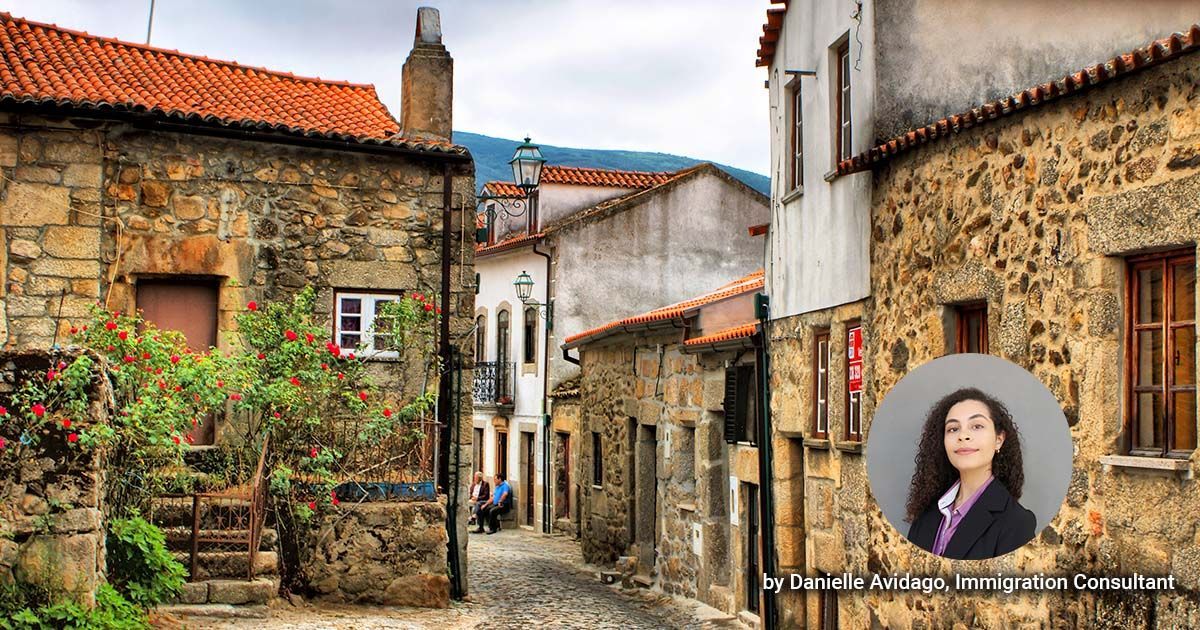Family Reunification: Keeping Families Together

Maria Matos de Almeida | Immigration Consultant
Family is the first protection and the last support of each person, the first and last link between the person and the community to which a person belongs. The State acknowledges that families play an important role in passing on values and bonds between different generations, all while allowing for individual freedom.
The family is considered a crucial element of society and according to Article 67 of the Portuguese Constitution, the State is responsible for "defining, after hearing the associations representing families, and implementing a family policy with a global and integrated character".
The Portuguese legislator has recognised the importance of family in society and established the concept of family reunification within immigration laws. This allows relatives of a residence permit holder to apply for permission to relocate and join them in Portugal. Through family reunification request, a person who has a residence permit in the country can take their close family members to live with them.
Portuguese law establishes the right to family reunification in Article 98 of Law 23/2007 dated 4th July. The definition of a "family member" is provided in Article 99 of the same law. It is consider a family member of the main applicant,
- The spouse or partner, the quality of the partner having to be proved under existing law;
- Under-18-year-old children, dependent incapable children, or over-18 dependent children;
- Under-18-year-old children adopted by the applicant when not married, by the applicant or the spouse, as a result of a decision of the competent authority of the country of origin, provided that the law of that country grants the adopted the same rights and duties as those of natural parentage and that the decision is recognised by Portugal;
- Dependent parents of either spouse or partner.
- Under-18 year-old siblings of either spouse or partner if legally under their supervision.
If the family member wishing to reunite is in Portugal, they must apply for the reunion application in person. If they are not in Portugal, the person holding the right to family reunion must apply instead. To proceed with the request, it is necessary to prove the links or the responsibility for the family members with specific documents, such as certificates or judicial decisions.
Until recently, the family reunion application deadline required the main applicant to obtain their residence permit before the application could be submitted. The only exception was for family members of Golden Visa applicants who could submit their application within three days of the main applicant. However, since the beginning of this year, it is now possible to apply for a family reunion visa at the same time as applying for a visa to relocate to Portugal (any type D visa).
The Portuguese law has provided special conditions to apply for reunification in various situations. Examples are the application for family reunion through article 122 of Law 23/2007 of 4 July, and the residence card of a family member of an EU citizen (Article 15 of the Law 27/2006, of 9th August).
Family reunification through article 122 is, in fact, a residence permit with a residence visa waiver. In this case, citizens who fit into one of the situations foreseen in the Law do not need a prior visa, and can request the residency permit to live in Portugal. It can be applied in many special situations, as follows:
- Minors, foreign children with RA, born in Portuguese territory;
- Minors, born in Portugal, who are in the country and attend pre-school, primary, secondary or vocational education;
- Children of AR holders who have reached the age of majority and have remained in Portugal since the age of 10;
- Adults, born in Portugal, who have not left the country since the age of 10;
- Minors who must be under guardianship (according to the Portuguese Civil Code);
- Who have ceased to benefit from the right of asylum in Portugal because the reasons that justified the protection have ceased to exist;
- Who suffer from an illness that requires prolonged medical assistance and makes it impossible for them to return to their country of origin to avoid risk to their health;
- Who have completed effective military service in the Portuguese Armed Forces;
- Who, after losing Portuguese nationality, have remained in the country for the last 15 years;
- Who have not been absent from Portugal and whose right of residence has expired.
It also applies to these people:
- Who have minor children residing in Portugal or with Portuguese nationality and who effectively exercise parental responsibilities (guaranteeing support and education for the minor);
- Diplomatic and consular agents (and respective spouses, ascendants and descendants under responsibility) who have official recognition in Portugal for three years or more
- Who are (or have been) victims of a serious/very serious criminal offence or misdemeanour in relation to employment (provided that they have reported the offence to the competent authorities, cooperate with them and comply with other legal requirements);
- Who have benefited from a residence permit granted by article 109 (victims of human trafficking or illegal immigration);
- Who, after having obtained a RA for secondary education students or for students of the 1st cycle of higher education, and having concluded their studies, intend to exercise a professional activity in Portugal;
- Who, having benefited from RA for study in higher education institution or for research, and concluded their studies or research, intend to take advantage of the maximum period of 1 year to look for a job or to create a company in Portugal (compatible with their qualifications);
- Who, after obtaining the temporary stay visa for research or highly qualified activity, intend to carry out in Portugal a research activity, a teaching activity in a higher education institution or a highly qualified activity;
- Who prove one of the investment activities foreseen for the Golden Visa.
On the other hand, eligible non-EU dependent relatives of an EU citizen are entitled to a Portugal Residency Card valid for a period of 5 years and renewable thereafter every 5 years. This is foreseen in the Article 15 of the Law 27/2006, of 9th August.
Despite all of the considerations to keep in mind when it comes to family reunification requests, Portugal’s legislation proves to understand that family is fundamental. This legislation and the procedures that follow ensure a way for close relatives of applicants who have a residence visa in the country to join them and expand their family connection.
It is unfortunate however that, due to increased backlogs, authorities have not been able to provide many appointment slots for individuals seeking such requests. Nevertheless, family reunification remains a valuable asset and allows those wishing to move with their families away from home great opportunity to do so.
If you have further questions regarding this matter,
get in touch with us and we will be delighted to assist you.











